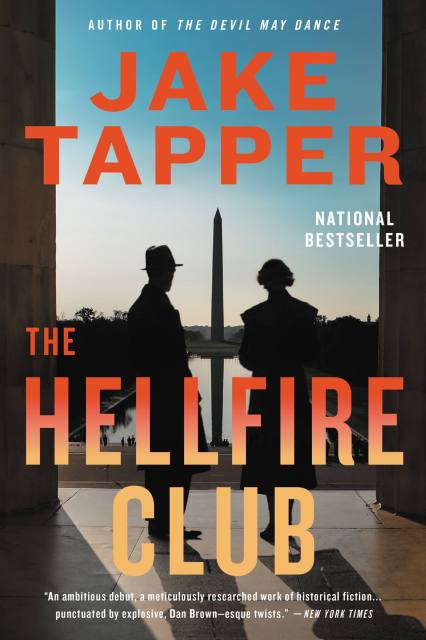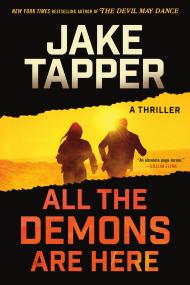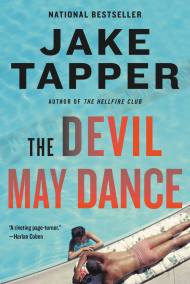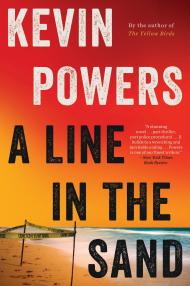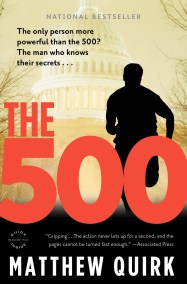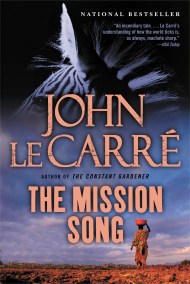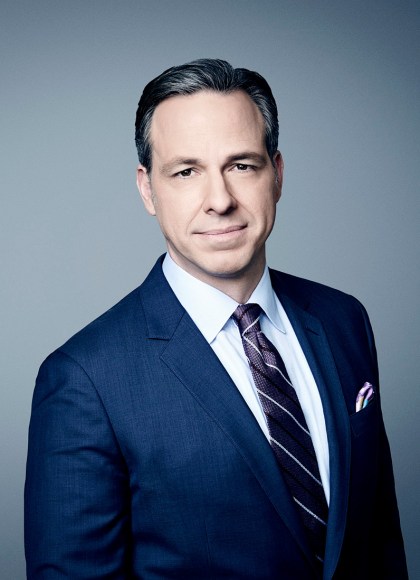By clicking “Accept,” you agree to the use of cookies and similar technologies on your device as set forth in our Cookie Policy and our Privacy Policy. Please note that certain cookies are essential for this website to function properly and do not require user consent to be deployed.
The Hellfire Club
Contributors
By Jake Tapper
Formats and Prices
- On Sale
- May 21, 2019
- Page Count
- 352 pages
- Publisher
- Back Bay Books
- ISBN-13
- 9780316472302
Price
$16.99Price
$22.49 CADFormat
Format:
- Trade Paperback $16.99 $22.49 CAD
- ebook $11.99 $15.99 CAD
- Audiobook Download (Unabridged)
This item is a preorder. Your payment method will be charged immediately, and the product is expected to ship on or around May 21, 2019. This date is subject to change due to shipping delays beyond our control.
Buy from Other Retailers:
A young Congressman stumbles on the powerful political underworld of 1950’s D.C. in this “potent thriller” (David Baldacci) and New York Times bestseller from CNN correspondent Jake Tapper.
Charlie Marder is an unlikely Congressman. Thrust into office by his family ties after his predecessor died mysteriously, Charlie is struggling to navigate the dangerous waters of 1950s Washington, DC, alongside his young wife Margaret, a zoologist with ambitions of her own. Amid the swirl of glamorous and powerful political leaders and deal makers, a mysterious fatal car accident thrusts Charlie and Margaret into an underworld of backroom deals, secret societies, and a plot that could change the course of history. When Charlie discovers a conspiracy that reaches the highest levels of governance, he has to fight not only for his principles and his newfound political career…but for his life.
-
Praise for The Hellfire Club
-
"This is a remarkably accomplished effort, especially for a first novel, very much like a Brad Meltzer thriller: energetic and mysterious, with plenty of suspense and a general feeling of evil lurking just barely behind the scenes. Tapper brings an expert's eye to the novel, too, layering it with the kind of detailed political knowledge that only someone with his first-hand experience could bring to the story. An auspicious debut."Booklist
-
"Fiction is as suspenseful as truth in Jake Tapper's The Hellfire Club"Vanity Fair, What to Read in May
-
"CNN's Jake Tapper proves he has the page-turning knack in his entertaining debut novel"Jocelyn McClurg, USA Today
-
"The Hellfire Club is hot summer reading"Tampa Bay Times
-
"The action comes fast and furious, "House of Cards" on steroids; you'll be turning pages faster than a cable channel updates its chyron. Perfect for an airplane or the beach, The Hellfire Club is a worthy distraction from the real-life news cycle Tapper presides over."Cynthia Dickison, Minnesota Star Tribune
-
"Insightful... Tapper takes readers back to a Washington remembered for being a time of distrust and potential future conflicts. Key historical figures interact with Tapper's fictional characters, and with his sources at the end of the novel showcasing his research, it almost feels like everything actually happened. It is fiction, however, well-written and worthwhile."Jeff Ayers, The Associated Press
-
"[The Hellfire Club is] both an engaging and slyly timely foray into Washington politics... incorporat(ing) shades of Frank Capra's Mr. Smith Goes to Washington as well as elements of contemporary toxic alliances."Seattle Review of Books
-
"Startlingly good...a reminder that the rarest thing of all in spy novels is a writer willing to give us a character who could exist just as easily in any kind of literary fiction."Alexander Aciman, Tablet
-
"[The Hellfire Club] has the best qualities of this sort of historical fiction, which include the winking perspective of the present."Ben Smith, BuzzFeed
-
"An ambitious debut, a meticulously researched work of historical fiction with a byzantine plot punctuated by explosive, Dan Brown-esque twists"Alexandra Alter, New York Times
-
"a splashy, swampy page-turner [that] plunges readers into the heart of '50s Washington, D.C. The book showcases Tapper's passion for American political history, rich as it is with fascinating period details, as well as his feel for a story well-told."David Canfield, Entertainment Weekly
-
"Tapper uses his storytelling chops to deftly put you in the moment when Joe McCarthy was waving his infamous paper and the Congress was at peak skullduggery. Hellfire is a potent thriller, replete with well-developed characters that made me think that history does indeed repeat itself."David Baldacci, #1 New York Times Bestselling author of End Game
-
"The Hellfire Club's first, thrilling scene pulled me into 1950s Washington, D.C., and didn't let go until the last, satisfying page. Tapper's passions for history and politics shine through in this remarkably timely, page-turning debut."Alafair Burke, author of the New York Times Bestselling The Wife
-
"A fast-paced, thrilling story of corruption and intrigue in Washington, DC, Jake Tapper's The Hellfire Club is terrific: provocative and timely."Harlan Coben
-
"A fun, fast, gripping thriller full of real-life dirty dealmakers and legendary political power-brokers. No one knows the ins and outs of Washington politics like Jake Tapper."Anderson Cooper, #1 New York Times Bestselling author of Dispatches from the Edge
-
"Leave it to Tapper to find the truth in fiction. This great buzzsaw of a mystery is packed with indecent politicians and secret societies - making the 1950s setting just as relevant today. The scariest part of The Hellfire Club is that it proves Washington - and America - is forever mourning for the past."Brad Meltzer, The Escape Artist
-
"Here's your chance to get up close and personal with John and Bobby Kennedy, Nixon, Eisenhower, Kefauver, LBJ and Joe McCarthy. Jake Tapper puts you right back in the 50's. At the same time, Tapper has written a superior thriller that I couldn't stop reading. To be completely honest though, Tapper is an irritating bastard. Journalists like him are supposed to be writing dusty non-fiction tomes that help us get to sleep, not thrillers that keep us up half the night. The Hellfire Club is a helluva good read. Now Tapper should return to writing non-fiction."James Patterson, #1 New York Times Bestselling author
-
"From the moment you enter The Hellfire Club's world of suspense and intrigue and sex and danger, you won't want to leave. The swampy world of 1954 Washington DC feels vividly relevant in our current day politics. A must read!"Shonda Rhimes
-
Praise for THE OUTPOST:
-
"The Outpost is a mind-boggling, all-too-true story of heroism, hubris, failed strategy, and heartbreaking sacrifice. If you want to understand how the war in Afghanistan went off the rails, you need to read this book."Jon Krakauer, author of Into Thin Air and Where Men Win Glory
-
"There have been many books written on the subject of America's seemingly endless engagement in Afghanistan, but none better than The Outpost."Jeffrey Goldberg, The Atlantic
-
"Brilliant, dedicated reporting by a journalist who goes to ground to get the truth. A sad, real tale about this war, America and the brave warriors who live-and die-at the point of the spear."Bob Woodward, author of PLAN OF ATTACK, THE COMMANDERS and OBAMA'S WARS
-
"Analyzing the consequences of decisions, large and small, is what makes Tapper's book so important...for those wishing to understand the middle years of the war, they could do no better than to read THE OUTPOST."Nate Rawlings, Time
-
"Jake Tapper has written perhaps the best book set in Afghanistan to date...He provides a window into the false hopes and visions that enabled this failed experiment, an attempt to create government in spaces that had actively avoided such."Douglas Ollivant, Foreign Policy
-
"[Jake Tapper] has woven an intricate account about battlefield bravery hamstrung by military bureaucracy...[his] voice is understated, not polemical-just a good reporter letting the facts speak for themselves."Tony Perry, Los Angeles Times
-
"[A] fascinating history...Tapper delivers a blow by blow account of [the soldier's] actions, their personal stories, and the tortured, often incomprehensible command decisions that kept them fighting despite inadequate support and an ally, Pakistan, that actively encouraged the enemy."Publishers Weekly
-
"One of the most important [books] of the year. Jake Tapper's book is meticulously researched, excellently written and a must-read for everyone who does more than just mouth the phrase, 'I support the troops.' "Curt Schleier, Minneapolis Star-Tribune
-
"The power of THE OUTPOSTlies in Tapper's development of the main characters ... He juxtaposes dramatic battles, complete with limbs blown off and eyes dangling from sockets, with poignant scenes of wives and parents first learning of the deaths of their loved ones."Seth Jones, Washington Post
-
"The seminal work of documentary journalism to emerge out of the post-9/11 war in Afghanistan."Anand Sankar, Business Standard
-
"THE OUTPOST is valuable because its faithful account of bravery, stupidity, and inertia makes the objective case for admiration and outrage."Sam Jacobson, Commentary
-
"Mr. Tapper lays bare the poor decision-making that shattered dozens of American lives in the pursuit of an ill-conceived goal."Sarah Chayes, Wall Street Journal
-
"A heartbreaking chronicle of the rotation of soldiers asked to oversee an underfunded, often thankless mission."Sam Stein, Huffington Post
-
"As Rudyard Kipling did in the nineteenth century, now, in his magnificent book, Jake Tapper takes us to an untamed part of Afghanistan at war. Journey to THE OUTPOST to understand what our troops go through-and why they go through it."James Bradley, author of FLAGS OF OUR FATHERS, FLYBOYS and THE IMPERIAL CRUISE
-
"This is a narrative, not a polemic, and Tapper patiently lays out the history of what happened at Keating in a gripping, forceful style...[T]his unadorned, powerful accountchallenges the purposes and wisdom of America's ongoing military presence [in Afghanistan]...A timely indictment of a thoughtless waste of young American lives."Kirkus Reviews
-
"[An] incredible account of how this outpost was horribly jeopardized."Booklist
-
"A heartbreaking, detailed day-to-day account ... Tapper does what all great narrators do: He brings to life the individual men in a way that allows readers to see each soldier in full, with their unique backgrounds, hopes, dreams and families."Susan Gardner, dailykos.com
-
"The Army uses the term 'BLUF' - bottom line up front. The BLUF on Jake Tapper's new book on Afghanistan, THE OUTPOST, is that you need to read it."Kurt Schlichter, breitbart.com
Newsletter Signup
By clicking ‘Sign Up,’ I acknowledge that I have read and agree to Hachette Book Group’s Privacy Policy and Terms of Use
